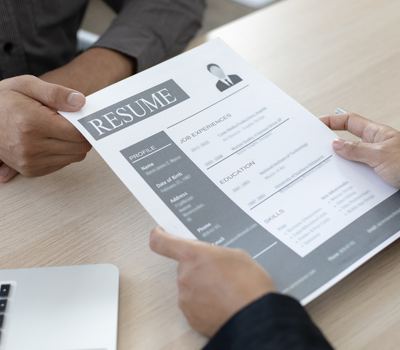World Mental Health Day 2025: Prioritising Wellbeing in the Energy Workforce
On 10 October 2025, organisations and communities worldwide will come together to recognise World Mental Health Day. This is a vital opportunity to raise awareness about mental wellbeing, challenge stigma, and take action to support those who need it most.
For professionals in the oil and gas industry and the renewable energy sector, mental health is more than a personal issue. It is a workforce priority that directly affects safety, performance, and retention in some of the world’s most demanding environments.
On October 10, 2025, industries worldwide will observe World Mental Health Day. This is a moment to recognise mental well-being, challenge stigma, and drive meaningful action within the workplace.
For professionals working across oil & gas and the renewable energy sector, the day carries relevance. The demands of the job, combined with the pace of the global energy transition, mean mental health is not just a personal concern but a business-critical issue.
Mental health in the energy sector
The energy sector is undergoing a major transformation, and sustainability is increasingly playing a key part in this. However, sustainability isn’t just about reducing carbon emissions, it also relates to sustainable workforce practices including supporting employees with their mental health in the workplace. For instance, do all employees have access to and receive adequate support to carry out their day-to-day jobs?
From offshore oil rigs to renewable energy construction sites, professionals often face conditions that test both physical and mental resilience. For example, extended time away from family, unpredictable schedules, safety-critical tasks, and the pressures of delivering on global energy needs can all take a toll.
Common mental health challenges in these industries include:
- Stress and anxiety caused by high-pressure environments and long shifts.
- Fatigue and burnout linked to long shifts and remote work.
- Uncertainty and job insecurity during the global energy transition.
- Barriers to seeking help, with stigma still prevalent in traditionally “tough” working cultures.
Why supporting wellbeing in oil & gas and renewables matters to businesses
For employers across oil, gas, and renewables, supporting wellbeing is not only the right thing to do, it also makes commercial sense. Companies that embed wellbeing into their culture see stronger workforce retention, improved safety records, and greater productivity.
Furthermore, by acknowledging mental health as a core part of operational excellence, organisations can position themselves as employers of choice in an increasingly competitive global talent market.
How energy employers can respond
World Mental Health Day serves as a reminder for organisations to integrate mental wellbeing into their workplace culture.
Here are some steps that energy companies can take in order to make measurable and meaningful differences for their employees:
- Demonstrate visible leadership commitment through CEOs and managers openly endorsing mental wellbeing and normalising open conversations about mental health and well-being.
- Provide accessible support services, such as employee assistance programmes and mental health first aiders.
- Offer training for managers and supervisors to recognise early warning signs of stress and burnout.
- Implement work-life balance policies, especially for rotational and offshore roles.
- Integration into safety frameworks, treating mental health with the same seriousness as physical health.
The bigger picture
The energy transition is reshaping the global workforce. As new technologies, skills, and operating models all bring opportunity, they also increase pressure. Protecting the mental wellbeing of professionals across oil and gas, offshore wind, hydrogen, and solar is essential for a resilient and future-ready industry.
It is clear that employees increasingly expect open and transparent workplace cultures, which is why leading energy companies are adopting more collaborative approaches to mental health and well-being. These initiatives are designed to encourage honest conversations, giving people the confidence to speak up without fear of stigma or discrimination.
For instance, some companies have started providing accessible resources, training leaders to have constructive and empathetic conversations with their teams, and ensuring safe, confidential spaces are available when support is needed.
Some of these methods include providing resources and training for leaders on how to have conversations with their direct reports, as well as how to create safe and confidential spaces for these conversations to take place.
Moreover, culture change is at the heart of this shift. The more these practices are embedded and shared across the industry, the more we can collectively learn, adapt, and raise the standard of wellbeing support for everyone.
At Visuna, we believe the strength of the energy sector lies in its people. By supporting mental health, we can help create a safer and more sustainable future for both the workforce and the industry.
How Visuna is supporting mental health and well-being
At Visuna, we recognise that the well-being of our people and partners underpins everything we do. That’s why we’ve taken clear steps to ensure mental health is built into our culture and our way of working:
- Trained Mental Health First Aiders. Our Mental Health First Aiders, provide a first point of contact and support for colleagues who may be struggling.
- Better Health at Work Award – Bronze: Reflecting our ongoing commitment to creating a workplace where wellbeing is prioritised and recognised.
- Open conversations. We encourage our teams across global offices to normalise discussions about stress, balance, and support.
- Continuous improvement, including embedding wellbeing initiatives alongside safety and compliance frameworks.
By investing in these measures, we aim to lead by example, showing that energy companies and recruiters can play a meaningful role in building healthier, more resilient workforces.
This World Mental Health Day
Let’s commit to making mental health a permanent part of the energy conversation. Together, the sector can break stigma, build healthier workplaces, and ensure that the people powering our world have the support they need to thrive.
For more information and support, visit the Mental Health website >
Other articles you may be interested in:






